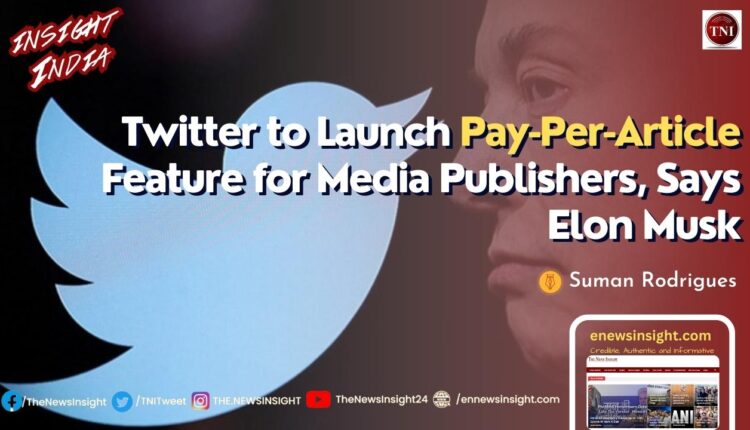Twitter to Launch Pay-Per-Article Feature for Media Publishers
Musk believes that this new feature will benefit both media outlets and the public. Users who are not keen on signing up for monthly subscriptions can pay a higher per-article price to access content occasionally.
Twitter CEO, Elon Musk, has announced that the social media platform will soon introduce a new feature that will allow media publishers to charge users to read individual articles shared on the platform. This feature is set to be launched next month and will enable news outlets to charge users on a per-article basis with just one click.
Musk believes that this new feature will benefit both media outlets and the public. Users who are not keen on signing up for monthly subscriptions can pay a higher per-article price to access content occasionally. This move could potentially create a new revenue stream for publishers and give users more options for accessing high-quality content.
Support Independent Journalism? Keep us live.
While Musk has not revealed many details about the feature, such as the payment amount, payment mode or which accounts will be eligible for the new feature, it is clear that Twitter is undergoing a rapid transformation under his leadership. Musk is making changes to the legacy verification system and plans to remove all legacy verified blue checks, making it exclusive to only those who pay for it.
Musk views the legacy verification system as flawed, calling it “corrupt and non-sensical,” and pledged to remove it shortly after acquiring Twitter for $44 billion. He has also implemented extreme policy changes, new features, work policies and has reduced the workforce by over half.
Although the specifics of Musk’s newly announced pay-per-article feature remain sparse, the move is likely aimed at generating revenue for Twitter, something that has been on Musk’s mind since he became CEO. The pay-per-article model could provide a new revenue stream for Twitter by allowing users to access premium content for a fee, with Twitter taking a cut of the revenue generated by the paid articles.


Comments are closed.